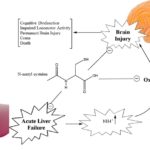Why the Current Model of Neurorehabilitation Does Not Work as Well as It Could: The Proof is in the Pudding and the Problem is in the Paradigm
The effects of every brain injury, brain disease, or brain “irregularity” are different. While brain research has found certain functions to be strongly correlated with certain structures within the brain, the wiring of neurons within those structures are different in each individual. This connection matrix of neurons, also referred to as “the connectome”, is not static: it changes. In fact, the wiring of neurons can change within hours (Sporns, Tononi and Kotter: http://www.ncbi.nlm.nih.gov/pmc/articles/PMC1239902/).
And because the functionality of the brain is so dependent on that wiring, it is very difficult, and arguably impossible using our current technology, to find effective therapies for brain injuries or disease under the research methods employed by western medicine.
The paradigm that is used to draw conclusions by western medicine is dependent upon double blind, placebo controlled studies involving consistent variables and hundreds of test subjects. Because the wiring of no two brains are the same and is constantly changing, and because neuronal wiring seems to directly affect the function of the brain to such an impressive degree, having the same conditions with such inconsistent and ever changing variables is impossible. Especially for hundreds of clinical trials.
Brain injury treatments, for example, could only be tested to western standards by inflicting the same brain injury on a large group of people, treating half, and not treating the other. Because all brains are different, all brain injuries are different as well, so it is currently impossible to inflict the same brain injury on different people. Thus, testing to western medical standards when it comes to brain injury is impossible (and I hope that this is not something that anyone is trying to perfect. A mind is a terrible thing to waste.)
Western medicine is invaluable and has made great strides in the advancement of laboratory medicine, the bacteriological revolution, the birth of effective surgery, guaranteeing that treatment is effective, the success of several testing and viewing procedures, the success of increasing human life expectancy, etc. It has done so by isolating variables; i.e., focusing on the problem or symptom and only the problem or symptom. Western medicine also has preventative care that is outstanding and should not be discounted, however, a paradigm that only looks at one area within the body is a paradigm that I can only call “tunnel vision.”
 Don’t get me wrong, an approach to treatment that relies heavily upon a strict adherence to the formal scientific process, which is the approach that western or modern medicine takes, is a very good thing for many applications! Outside of acute stage treatment, however, its focus seems to be driven, in many cases, on relieving symptoms, instead of solving the underlying issue. Keeping in mind that pharmaceutical companies fund most research, so there is an underlying agenda for this research to culminate into the development and production of a marketable product and for the need of that product to last as long as possible. The goal of any company is to prolong the need for their product, thus, the goal of a pharmaceutical company is not to find a cure but to prolong treatment.
Don’t get me wrong, an approach to treatment that relies heavily upon a strict adherence to the formal scientific process, which is the approach that western or modern medicine takes, is a very good thing for many applications! Outside of acute stage treatment, however, its focus seems to be driven, in many cases, on relieving symptoms, instead of solving the underlying issue. Keeping in mind that pharmaceutical companies fund most research, so there is an underlying agenda for this research to culminate into the development and production of a marketable product and for the need of that product to last as long as possible. The goal of any company is to prolong the need for their product, thus, the goal of a pharmaceutical company is not to find a cure but to prolong treatment.
While an evidence based paradigm is still concerned with double blind, placebo controlled studies, they also look at anecdotal evidence from many different cases (possibly hundreds, thousands, or millions of cases) where a method of treatment has been successful in the past. There is strong evidence for a treatment being effective, but there is no hard proof that it WILL be effective.
Western medicine is great for some things (acute treatment), and evidence based medicine is far superior for other things (chronic conditions which almost always involves the balance of the entire body and therefore cannot be proven under western medicine’s paradigm). When studying brain injury treatment, evidence based “proofs” seem to be necessary because it is impossible to study an inconsistent organ using a paradigm that requires consistent variables.
It is very important, when considering any form of medical treatment to understand what the risks are, what the possible benefits are, and what is not yet known… And there is a whole lot that we do not know (including the long term effects of any pharmaceutical drug that has not been around for a lifetime). If the possible benefits of a treatment outweigh the risks and unknowns, then I think that particular treatment is a good idea.
Holistic or alternative medicine is not focused on relieving symptoms, although it certainly observes and relieves symptoms by addressing the underlying problem. This is usually achieved by assisting the patient in putting his or her brain and body in the best possible state of homeostasis (the body’s ability to regulate itself) which allows the brain and body to do what it does best: self preserve.

Functional medicine is considered evidence based and works under the same paradigm. Evidence based because they have seen treatments be successful many times before, but they has not been proven in controlled circumstances many times and under the conditions that are part of western medicine’s research standards and protocols (i.e. hundreds of clinical trials with constant variables). A doctor of functional medicine, for example, talks to the patient, asks questions, and gets to know him or her diet, pains, feelings, energy, sex drive, bathroom frequency, color and consistency etc… yeah… It gets a little “personal.”
I am not picking a side because both have proved their worth to me, but alternative, naturopathic, functional, or holistic medicine is far too often poo pooed as “some hippie stuff” and looked at as inferior. They both have their strengths and weaknesses. I am so impressed with how much I have improved since following instructions given to me by my functional neurologist. Not taking pharmaceutical drugs, but simply following instructions.
One of the many reasons why I am writing this book is to lend some credibility to alternative, naturopathic, functional, or holistic medicine. Most of the evidence based protocols weigh the risk and unknowns vs possible benefits and aims to pose very little to no risk. The methods have been shown to be extremely effective. Several methods in my case have to do with diet and exercises that are not at all taxing and certainly not dangerous. It is hard to change one’s diet, but it is certainly not dangerous to do so when that diet is to eat as much of the foods that humans have been consuming for thousands of years, that one wants. Again, western medicine’s standards are extremely important for so many things, but discounting holistic, functional, or alternative medicine limits the true advancement of medicine and wellness of people, so credibility needs to be given where it is due.
I am a living example of the effectiveness of using an evidence based paradigm for treatment, and so I advocate for these successful methods and explain the reasons as to why methods are used. Evidence based medicinal methods that simply cannot be proven by western standards, but have been shown to be effective, should not be looked at the way they oftentimes are. People that need help do not even know about several effective methods to improve their lives because anything that is not western medicine is frowned upon by the majority of the western medical practice. People’s lives are nothing to play favorites with.
Many great strides have come about in brain research, and perhaps one day, certain methods will be proven by western standards. I look forward to these advancements, but it is not worth waiting for a double blind, placebo controlled treatment when people are currently suffering from debilitating conditions. Be it autism, schizophrenia, epilepsy, depression, dementia, Alzheimer’s disease, ataxia, apraxia, or any other neurological diseases or brain injury as well as chronic conditions like chronic fatigue, adrenal burnout, Crohn’s disease, Hashimoto’s, SIBO, or even arthritis.
The proof of an evidence based paradigm is anecdotal rather than scientific, and is therefore not as reliable. But living in a state where one is dependent on pharmaceutical drugs for the rest of ones life is nothing to rely upon either, in my opinion. Thus, reliability is subjective upon whether long term health is desired or whether a treatment can be replicated. We are not Petri dishes. We are a network of systems that rely upon its own systems functioning properly. As they say, “the proof is in the pudding” when something is shown to be effective. If the brain cannot currently be understood through the scientific method, and treatment in western medicine depends on a paradigm that adheres to the scientific method, then the problem is in the paradigm.
img credit: MSKTC, Preapism.com, CompleteCareEtc



